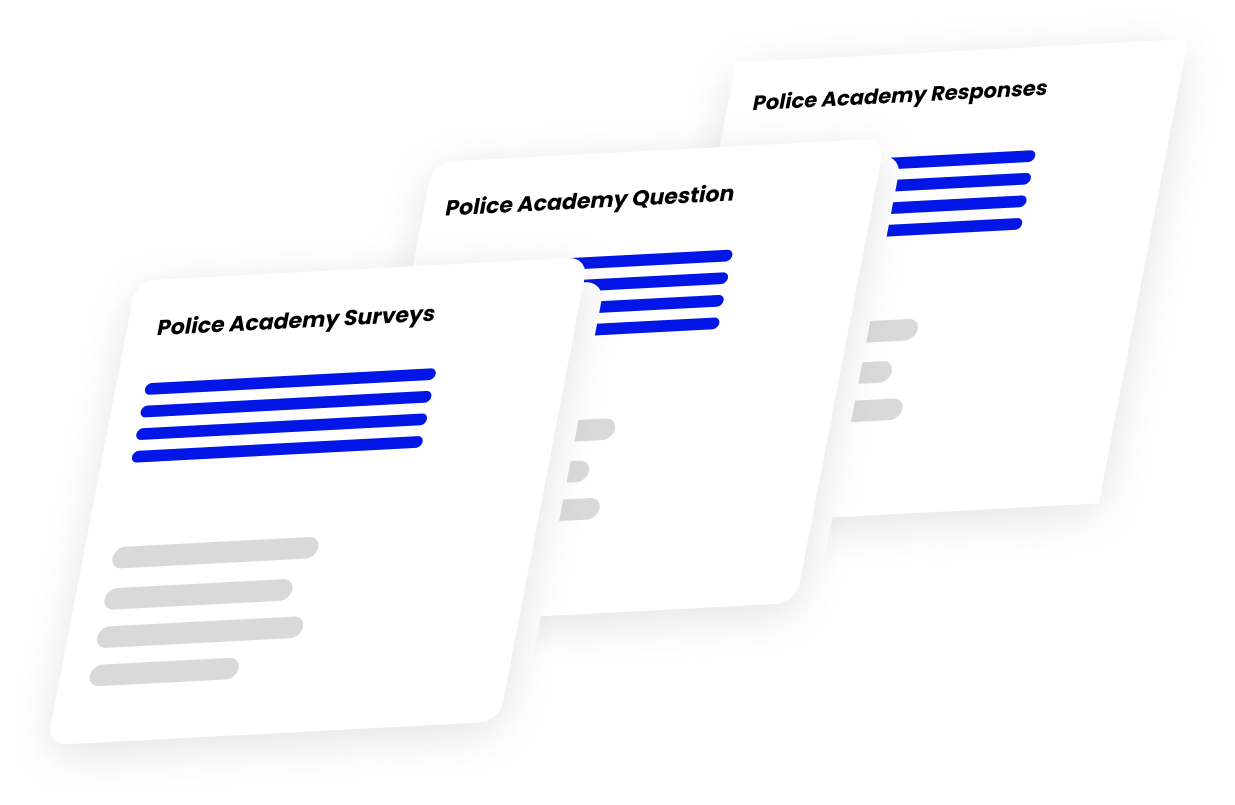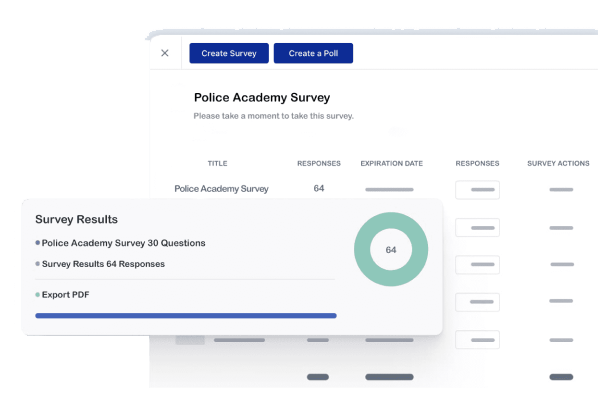Police Academy Surveys
Police academies are essential for preparing law enforcement officers to carry out their duties. These training programs provide officers with the necessary skills and knowledge to perform effectively. To evaluate the effectiveness of the training, police academies should conduct surveys of their students to gather feedback on their satisfaction with the academy and the quality of instruction they received
What Is A Police Academy Survey?
A police academy survey is a tool that is used to assess the effectiveness of a police academy training program. It typically involves gathering feedback from police academy graduates, instructors, and other stakeholders about the content and delivery of the training program.
The survey may include questions about the quality of instruction, the relevance of the material covered, the level of interaction and engagement in the class, and the overall satisfaction with the program. The survey results can be used to identify areas of strength and weakness in the training program and make necessary improvements to better prepare police officers for their roles in the community.
Why Should It Be Done?
1. To assess the effectiveness of the training program: A police academy survey can help to determine whether the training program is meeting its objectives and preparing officers for their roles in the community.
2. To identify areas for improvement: The results of the survey can highlight areas where the training program may need to be modified or improved in order to better meet the needs of the students and the community.
3. To gather feedback from stakeholders: A police academy survey can provide valuable insights and perspective from both students and instructors, as well as other stakeholders such as community members and law enforcement agencies.
4. To promote continuous learning and development: By regularly conducting a police academy survey, academies can stay up-to-date with the latest best practices in law enforcement training and make any necessary adjustments to their programs.

There are many reasons why a police academy survey should be conducted. Here are a few of them:
- To assess the quality of training that police academies are providing.
- To identify areas where improvement is needed.
- To ensure that police academies are meeting the needs of their students.
- To assess the effectiveness of the curriculum.
- To identify any gaps in the training that police academies are providing.
- To assess the quality of the instructors.
- To identify any areas where improvement is needed in the way that police academies are run.
- To assess the facilities and resources that are available to police academies.
- To identify any areas where improvement is needed in the facilities and resources that are available to police academies.
- To assess the level of support that police academies are receiving from their local communities.
- To identify any areas where improvement is needed in the level of support that police academies are receiving from their local communities.
- To assess the level of cooperation that police academies are receiving from other agencies.
- To identify any areas where improvement is needed in the level of cooperation that police academies are receiving from other agencies.
- To assess the level of cooperation that police academies are receiving from the media.
- To identify any areas where improvement is needed in the level of cooperation that police academies are receiving from the media.
- To assess the level of cooperation that police academies are receiving from the public.
- To identify any areas where improvement is needed in the level of cooperation that police academies are receiving from the public.
- To assess the morale of the police academy staff.
- To identify any areas where improvement is needed in the morale of the police academy staff.
- To assess the overall effectiveness of police academies.
Benefits of a Police Academy Survey
There are several benefits of conducting a police academy survey:
1. Improved training programs: By gathering feedback from students and instructors, a police academy survey can help identify areas where the training program can be improved, resulting in more effective and relevant training for officers.
2. Enhanced accountability: A police academy survey can help ensure that the training program is meeting the needs of the students and the community, and that it is held accountable for delivering high-quality training.
3. Increased satisfaction: By gathering feedback from students and instructors, a police academy survey can help identify areas where the training program is succeeding and areas where it can be improved. This can lead to increased satisfaction among students, instructors, and other stakeholders.
4. Better prepared officers: By regularly gathering feedback and making necessary adjustments to the training program, a police academy can ensure that officers are receiving the best possible training and are well-prepared to serve their communities.
Overall, a police academy survey can help to improve the quality of law enforcement training and ensure that officers are well-equipped to carry out their duties effectively.

Conducting Police Academy Surveys can provide numerous benefits, including:
- Police Academy Survey can help identify areas where recruits need more training.
- It provides recruits with an opportunity to give feedback about their training, which can help to improve the quality of the training.
- Improved training programs through identification of areas for improvement.
- The Police Academy Survey can help identify gaps in training.
- Police Academy Survey can help police departments improve the quality of training.
- Police Academy Survey can help identify loopholes in training.
- Police Academy Survey can help organizations measure their training program’s efficiency.
- Enhanced accountability for the quality of training.
- Increased satisfaction among students, instructors, and other stakeholders.
- Better prepared officers through continuous learning and development.


